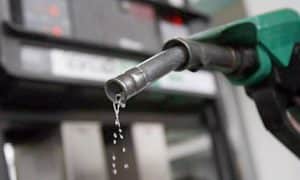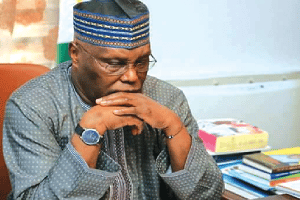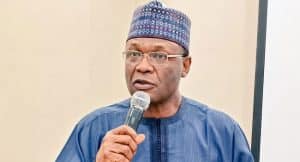Black market fuel vendors and commercial drivers in neighboring Cameroon, Benin, and Togo have complained about a slow market since the removal of the subsidy regime by President Bola Tinunu‘s government.
Recall that President Tinubu, on the day of his inauguration, declared an end to the fuel subsidy regime.
A development that stirred a lot of conversation around the deregulation of the downstream oil sector in the country.
Following the move, Nigerians have seen prices of Premium Motor Spirit, commonly known as petrol, jump from N189 per litre to N500 per litre and recently to N600 and N700 per litre, depending on the location.
This development, according to Reuters in one of its recent reports, has slowed the business of black marketers of the product in Nigeria’s neighboring countries.
Naija News understands that while the contraband fuel vendors in Togo and Benin have lost both supplies and customers, filling stations have become suddenly started to record high patronage.
A former Chairman of the Major Oil Marketers Association of Nigeria (MOMAN) and Chief Executive Officer of 11 Plc, Tunji Oyebanji, told The Punch that until oil prices reflect current market realities, there would still be danger in the sector.
He said that is what is obtainable in other neighbouring African countries like Togo, Benin, and Ghana that import petrol.
“If the prices in neighbouring countries reflect true market prices and our own do not, there is still a danger. Until we all import at the new exchange rate and know what the price is and compare it with our neighbours, we won’t know the exact situation. Likely, the differential will not be so much,” Oyebanji claimed.
This platform, however, understands that while petrol price per litre sells for around N617 in Nigeria, the product goes for around ₦1,169 in Mali; Ivory Coast: N986; Cameroon: N986; Ghana: N948, Togo: N945, and Benin: N877.
According to the Reuters report, in Benin and Togo, small nations to the west of Nigeria, contraband fuel vendors have lost supplies and customers. At the same time, formerly sleepy official petrol stations are suddenly busy.
This is because the landing cost of the products has begun reflecting the reality of the market in Nigeria, as some of these black marketers can not compete with the market realities.
The report says, “In Cotonou, the commercial capital of Benin, which is about 60 km from Nigeria, queues have been building up at official petrol stations, and some have been unable to meet the sudden surge in demand, especially from “zemidjan,” the local word for motorcycle-taxis.
“Before, we were selling about 2,000 litres per day, but now we’re selling up to 7,000 litres per day,” said a worker at the JNP fuel station, who gave his first name as Janvier. He had just turned away four customers because supplies had run out.
“The zemidjan-men are even fighting to get served.
“At Hilacondji, a border crossing between Togo and Benin, some black market fuel stalls were shut, while at others, vendors waited among rows of empty plastic jerrycans for potential deliveries.”
The post Subsidy Removal: Business Is Slow – Black Marketers Groan In Benin, Togo, Cameroon appeared first on Naija News.







